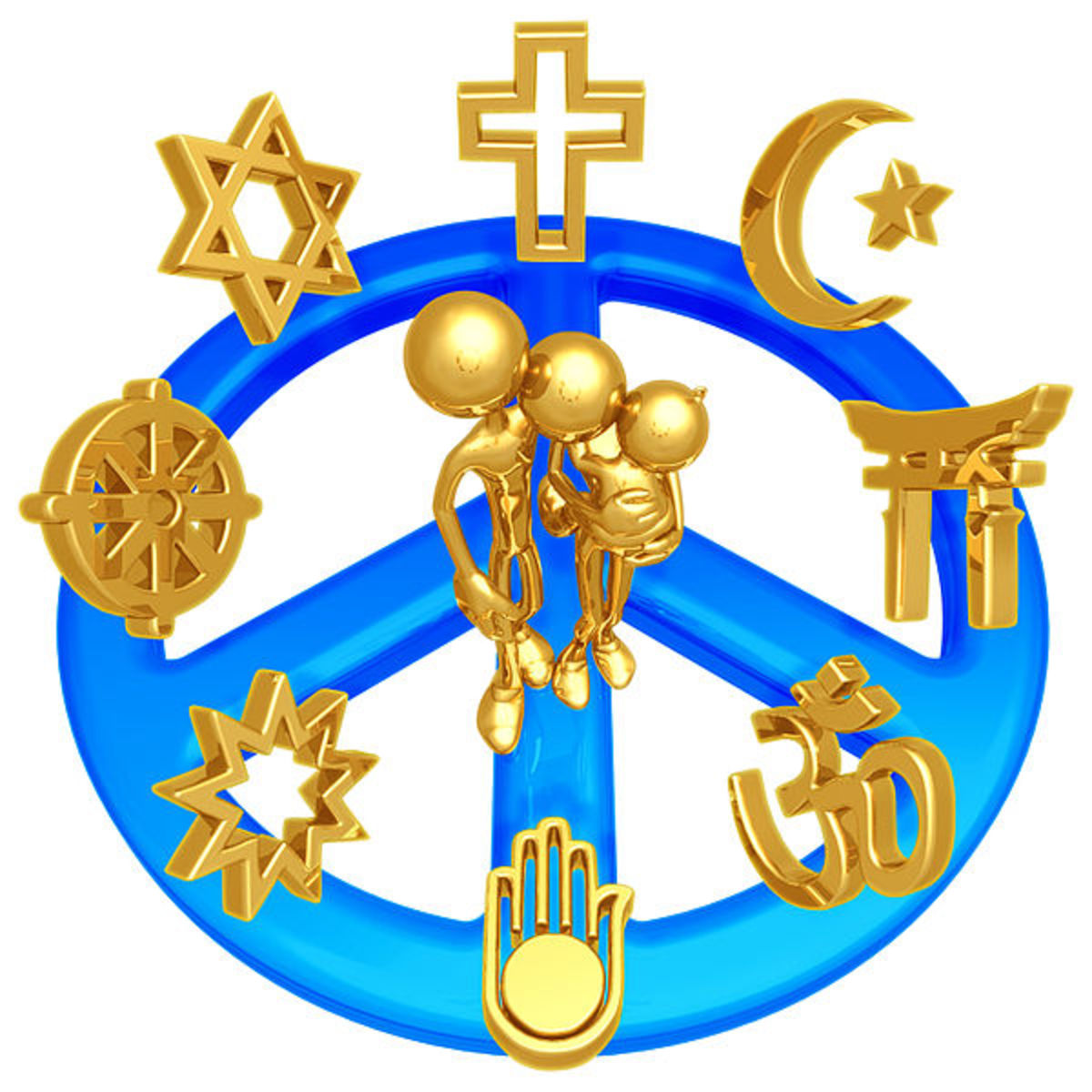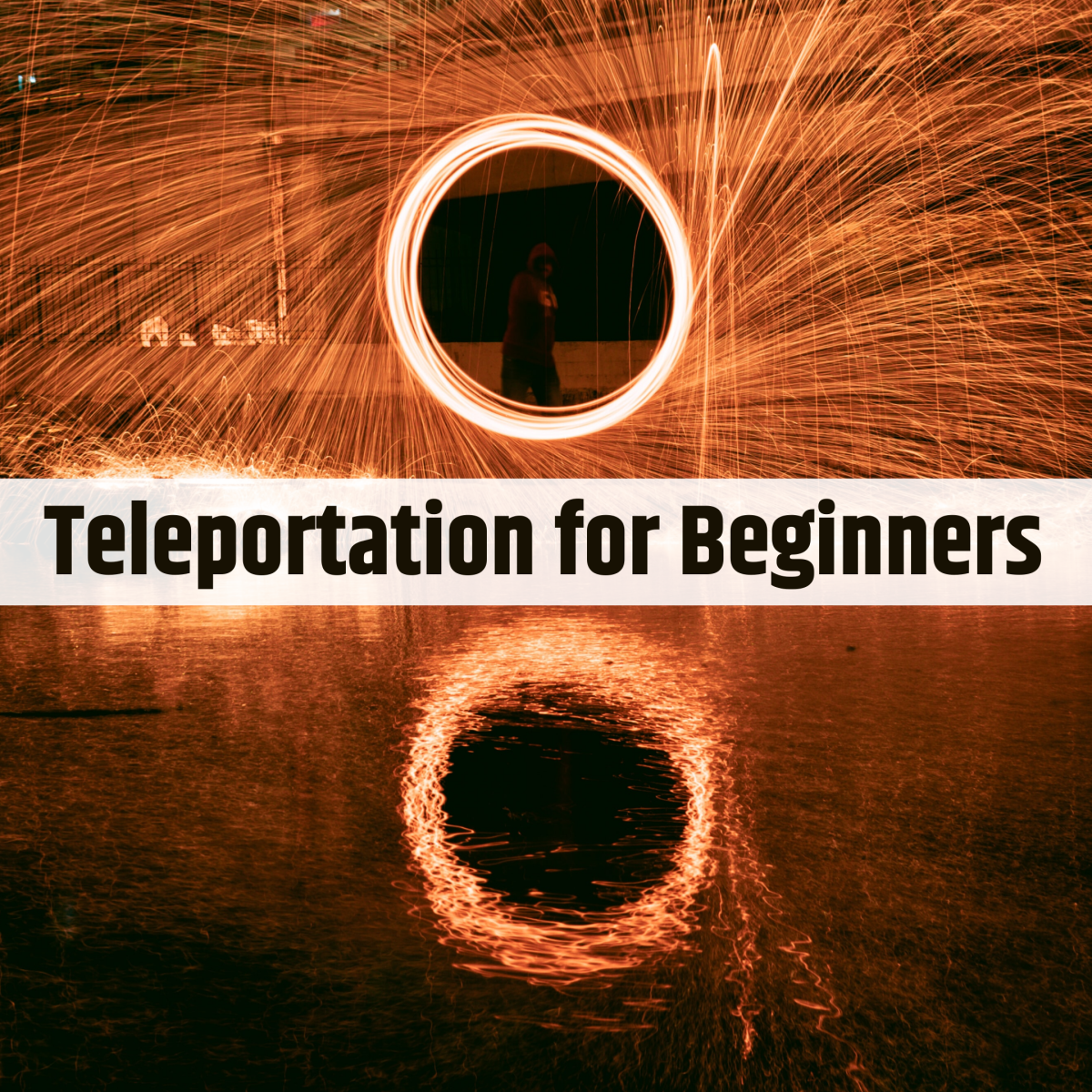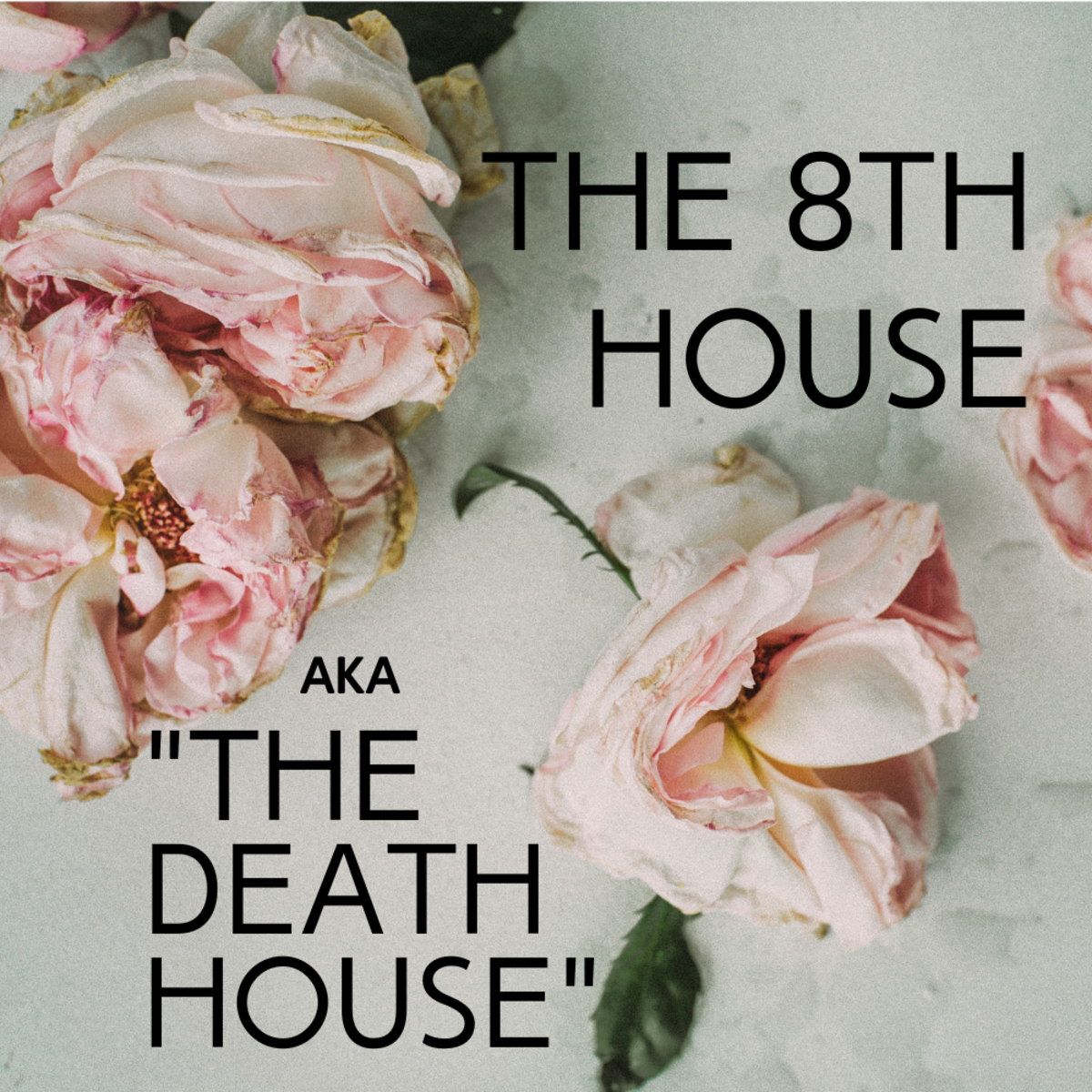To Believe or Not to Believe, That is the Question

For the most part, everything I've read here at HubPages shows tolerance and respect for alternative opinions. There is one topic, religion, that seems to be the proverbial hornet's nest but even so, what I've seen around here is mostly respect for others' beliefs.
I recently read a very honest hub, Tolerance, Awareness, Christians and Me! by VioletSun, which shows that tolerance starts in oneself, and a couple of days later I read a very elegant hub, Devine Delusions and Depravity, by ColdWarBaby (unfortunately no longer available), which demonstrates that one can strongly feel about an issue and be level-headed about it, no need to spill froth from one's mouth to make a statement.
Eventually, ColdWarBaby's hub inspired me to try my hand at explaining why I am not a believer and why I dislike and distrust organized religions. I'll try to do so with as much composure as these two hubbers managed their own hubs.

I THINK, THEREFORE... I THINK
"I see no possible way to link the rationality of science with the baseless dogma of any organized religion." – ColdWarBaby
The one and only reason for me not to believe, not to have faith, is that I can't find any scientific, empiric explanation to the precepts of any religion, first and foremost the existence of a superior entity. A bit of a silly statement, I realize, because that is precisely the foundation of any organized religion on earth: believing without seeing. Faith is a conviction that doesn't require proof. Empirically speaking, here's the score:
- In my favor: The existence of god cannot be proved.
- Against me: The existence of god cannot be disproved.
Seems a pretty straightforward tie, and I think we could all live in peace if we just accepted 1-1 and moved on with our business. That would be the ultimate exercise in tolerance: I cannot be convinced that god exists and a believer cannot be convinced of the opposite. No big deal, or it shouldn't be, because neither of us can affirm with absolute certainty that we are right.

ABSOLUTE CERTAINTY? ABSOLUTELY NOT
"Most people of reason agree that very little, if anything is 'carved in stone'. To those who think critically, absolutes are hard to come by." – ColdWarBaby
Because I don't have proof that my lack of faith in the existence of a bigger, superior entity is in any shape or form The Truth, I am prepared to accept the uncertainty and consequently I'm prepared to accept that there are people who believe. Thankfully, that is also the case with many people of faith. They accept that I cannot share their conviction and, more importantly, my lack of conviction doesn't pose a risk to their own, the fact that I question God's existence doesn’t make them question the same thing. Maybe they wonder why I can't believe, as I wonder about their unmovable conviction, but we don't nag each other.
To me, this is the purest form of faith, and one I, as a non believer, am perfectly prepared and willing to coexist with, because these believers wouldn't think of imposing on me what they understand is a personal belief, an act of faith.
However, in my experience, when it comes to organized religions, this ideal 1-1 score that I wish would be the norm, where the only "absolute truth" is the one each person chooses for themselves, is actually the exception. No matter how accepting I am, no matter that I state, firmly and unequivocally, "all right, good for you to believe", that is hardly ever enough to get away unscratched from a face-to-face with organized religions of any denomination.
Each organized religion that I've ever seen first hand or heard in the distance states to hold the truth, in absolute terms. I continue to wonder how that's possible, how can anyone (never mind X different denominations of the same religion) use, consciously, an act of faith, a belief, to try and impose an absolute behavioral system to other human beings.
This would be my primary issue, the necessary absolutism of organized religions –they must be absolutist and exercise absolutism, because they can't allow being questioned (especially from within) –questions allow doubt to creep in, and doubt is the foundation of science, of empiric proof, which is diametrically opposed to "believing without seeing".

I TAKE ISSUE WITH ABSOLUTISM
I would suggest that it would be wise to avoid like the plague anyone who claims with absolute certainty that his or her way is the only one." – ColdWarBaby
While I continue to admit that the existence of god cannot be proved nor disproved, I think there is empiric evidence to state that absolutism, be it moral or politic, has had a negative impact in humanity over history. Absolutism, of any kind, implies that there cannot be deviations from the absolute norm and, consequently, it forbids individual minds to prevail and furthermore it seeks "conversion" of any discrepant behaviors.
Absolutism, of any kind, has caused devastating wars, people to be imprisoned for their ideas, people to be burnt at the stake, people to "sacrifice" themselves to kill thousand others that aren't "believers in the same god"... Yes, I think there is empiric proof that absolutism is rather harmful for humankind.
Still, when it comes to religious absolutism, there will be people who justify it and its consequences because it's, well, an undisputable conviction. It cannot be argued with reason, it just is believed.
I find it very distressing, incomprehensible really, that people who believe in a morally absolute system, such as is the existence of god as origin and fundament of everything else, resort to moral relativism when it suits their purpose to justify their acts or, simply, their "reasoning".
So, "thou shall not kill" only applies when suitable, crusades are fine because they are in the name of god. How about "judge not, least ye be judged", or "let him who is without sin cast the first stone". And what of my all time favorite about turning the other cheek? I have yet to stumble upon an organized religion that ever turned its other cheek in the face of my questions, in the face of my doubts, or that didn't judge my lifestyle, or that didn't throw stones to any opposition (and quite literally, too, lapidating adulterous women is still a valid practice in some places) in spite of its own human and, consequently, imperfect nature.

I CAN LIVE WITHOUT PROOF. SO WHAT'S THE PROBLEM?
As I said earlier, if a believer lets me keep my score of 1, I have no problem whatsoever with letting them keep their tie to 1, regardless of how impossible it is for me to subscribe. Neither of us can prove our cases, so we let them rest, we agree to disagree. This peace treaty ends the moment a believer goes to all lengths to win an impossible to win match, it ends when absolutism enters stage left.
Last time I checked, "because I say so" wasn't an acceptable explanation to defend that god doesn't exist. However, organized religions seem to think "because [god, the bible, my church,... ] says so" is a perfectly valid explanation for their beliefs, and not only that, they seem to think it's a valid explanation to criticize any discrepant opinions! What on earth? I can't get away with it, but if it's written in an all-time best seller then it must be True? Now, hang on, I'm sure it's not so easy, because "Harry Potter" has sold billions of copies and people just don't go around saying it's The Truth, much less perpetuate unfairness on its name. And we're back to square one, we either agree to disagree, because neither of us is right nor wrong, or we have a problem.
And I do have a problem with organized religions, the lot of them insist that they are right and I am wrong, and really, I refuse to let an argument as childish and unreasonable as "because I say so" win this battle. I cope very well with a believer telling me "let me explain why God exists to me", or "believing makes me feel whole", or "believing brings me inner peace". In fact, I have no valid arguments against these ideas, nor any desire to dispute them. I don't cope at all when the only explanation I get is "because I say so". To make matters worse, this absolute, brooks no arguments "because I say so" is often followed by condemn and damnation.
And why would that be, I ask myself? The only logic explanation that I can find to the usual threats of hell and burning eternally is that there is no other way to push me to believe, or to act as if I believe. You must believe, or else. Again, absolutism. If I don't believe willfully, then I will be made to believe by fear of consequences (no joke, either, or ask the "witches" in the middle ages, or ask docs that work at abortion clinics about the bomb threats).
A rather obnoxious logic, to my unbelieving mind, because if I can't accept that the bible says so, or god says so, or the next-door neighbor says so, whatever gave anyone the idea that I will believe there are any repercussions to not believing? Regardless, the attempt to subjugate my free will is there, present and accounted for, whether I feel threatened or not is another matter.
FREE WILL AND TOLERANCE
I've explained why I dislike and distrust organized religions. I hope I didn't come across as just another sort of fundamentalist with my opinions. In closing, I will borrow yet another of CWB's gems:
"You can choose fact or faith. You can be indecisive and choose neither but, in so doing, you have still made a choice. In order to choose anything you must accept the existence of free will; that is what making a choice requires." – ColdWarBaby
I choose fact over faith, and I don't make that choice to annoy anyone, or to go against anything, and definitely not to be disrespectful to beliefs of others. I exercise my free will to choose fact over faith because I can't conceive choosing to ignore fact. Would organized religions please respect this choice?
The beginning of the end of any respect I may have had for any rep of any organized religion that stopped by to have a chat is when I see any attempt to curb my free will, my personal choice. When I get damnation instead of acceptance or dialogue, I cease to listen (oh, call me childish, will you) and I start to mentally fight it, because really, I was just trying to understand and accept that others had these beliefs, but in my core I simply don't believe. So I no longer want to tie this match, I want to win it. And here you have it, the beginning of my own empiric brand of intolerance.
"Willful ignorance is a state of mind against which, seemingly, no amount of reason can prevail." – ColdWarBaby
© 2008 Elena.








